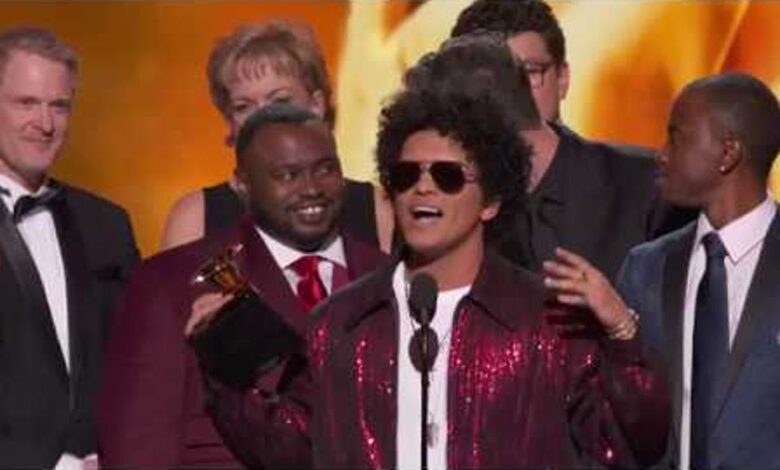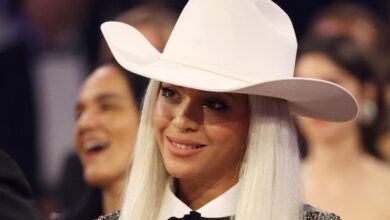The Bruno Mars Controversy Proves People Don’t Understand Cultural Appropriation

Before we begin any discussion of Bruno Mars and cultural appropriation, we must lay down a few ground rules:
- This will not be a debate about the quality of Bruno Mars’ work. That discussion is too subjective, and no one will ever reach a consensus on any kind of art. Plus, some people have shit taste in music, and I’ll be damned if I’m about to argue music with anyone who believes 21 Savage is better than Nas.
- For the sake of this argument, Bruno Mars is not black. He has a mixed racial background that includes Ashkenazi Jew, Puerto Rican and Filipino. One can debate where he fits in the African Diaspora, the meaning of “blackness” or whether race is an artificial construct. I can almost guarantee that if I called him right now and asked him to list his top five macaroni-makers, he’d have to think about it for a minute, and none of the names in his top five would begin with the word “aunt.”
- Black people created every form of American music. But there is a specific, indefinable genre of music that begins with R&B and encompasses hip-hop that we will heretofore refer to as “black music.”
The furious debate about Mars and whether or not he is a cultural appropriator has bubbled beneath the surface of his career for a while. It existed before he remade Earth, Wind & Fire’s “Uptown Funk” or Bell Biv DeVoe’s “Finesse.” Even when—
Wait … I’m being told that the previously mentioned songs are Bruno Mars originals. But I’m pretty sure the S.O.S. Band made “24 Karat Magic.” I think it was the B side to “Take Your Time,” so let’s use that as an example. What? That’s an original song, too? OK, I’m going to have to do a little more research on this and get back to you.
But before Mars won a Grammy and Meshell Ndegeocello called him a karaoke singer, there were always people who thought that someone put Michael Jackson, Prince and James Brown into a blender with a quarter cup of lukewarm water, a dollop of mayonnaise and a smidge of racial ambiguity, and out came the next pop sensation.
The conversation was reignited when this clip from the Grapevine (not this one; the other one) began circling the internet:
Seren Sensei, the woman in the clip, makes a convincing argument breaking down why Mars is a derivative artist who—willingly or not—gets to trade on his racial ambiguity.
But does that necessarily mean he is guilty of cultural appropriation?
There is no universally accepted definition of the term, but it generally relates to the use of the art, artifacts, symbology or anything of cultural significance to a minority or nondominant group of people by a person who is not in that group.
What separates cultural appropriation from a cultural exchange or paying homage is when someone “borrows” an item or symbol of cultural significance without acknowledgment, attribution or permission. One of the other hallmarks of appropriation is using someone’s culture to demean, make fun of or diminish it.
Understanding the definition and the power dynamics involved in cultural appropriation is the key to understanding the concept. When Kim Kardashian put cornrows in her hair and called them “Bo Derek braids,” it was cultural appropriation because she made no acknowledgment of the culture from which the style came.
And yes, black people can be cultural appropriators. When a black woman wore a Native American headdress to Coachella as a costume, she was appropriating by using part of a culture’s sacred ritual as cosplay. In fact, I am often accused of cultural appropriation. When people ask how I can use the white man’s internet and type on a keyboard that a white man invented and not be considered an appropriator, I want to explain to them how stupid they sound, but I don’t because they probably wouldn’t understand the concept.
But when it comes to music and art, cultural appropriation is a tricky thing to decipher. A nonblack person’s involvement in a traditionally black art does not rise to the level of appropriation in and of itself. Bruno Mars is 32 years old, meaning that he grew up during a time when hip-hop and R&B ruled the charts as the most popular music in the world. Anyone making popular music in 2018 is—by definition—making black music, regardless of their color.
To be honest, it is incumbent on white artists to acknowledge that, even if it seems unfair.
Beyoncé is only doing what Janet Jackson did before her and Diana Ross did before her. But Beyoncé doesn’t have to bear the burden of acknowledging that every time she steps onstage because—as a black woman—she is an inheritor of that legacy.
However, when Taylor Swift makes an album that looks like an unsweetened, gluten-free version of Beyoncé’s Lemonade, it comes off as cultural appropriation, even though it is quite possible that Taylor Swift was influenced by the same artists as Queen Bey (although, judging from the fact that Swift looks like she’s doing trigonometry in her head when she’s doing dance choreography, I doubt it).
Some might call it a double standard or reverse racism to demand that Swift and other white artists give a nod to borrowing from black music and culture while not requiring the same of black artists. However, being black means you are born into the legacy of the culture. I can walk into my grandmother’s house and open the refrigerator without asking permission. You cannot.
But here is the fault line:
Being a part of a culture—whether one is born into it or not—also comes with the responsibility of being a caretaker of it. If we kept our mouths closed, nonblack artists would suck our artistic heritage dry without caring what happened to whomever they left in the discarded heap. We gave Justin Timberlake a two-decade get-out-of-appropriation-free pass. When he was finished doing his 20-year impression of an R&B singer, he became a “Man of the Woods” and distanced himself from black music like it was Janet Jackson’s left titty.
There are black artists who have leaped to Mars’ defense, saying that he is not guilty of appropriation. As someone who is only marginally aware of his music, every time I have seen him perform, give an interview or receive an award, including the Grammy, he has made sure to acknowledge that he was influenced by black music almost exclusively.
So, based on the definition of cultural appropriation, is Bruno Mars guilty?
Nope.
Every single word that Sensei said was correct, but none of it defined cultural appropriation.
But I have a theory about the people who accuse Mars of cultural theft:
Maybe they are tired of seeing people like Post Malone take bits of black culture and use them to make derivative, unoriginal content meant to be palatable for white mouths. Perhaps they are tired of seeing more-talented black artists outshone by beige newcomers who pass the paper-bag test and don’t give white people the heebie-jeebies. It is possible that they are overzealous custodians of their culture.
Or maybe they’re just tired of seeing Bruno Mars. Maybe they saw his act when Janelle Monáe was doing the same thing for the past decade. Maybe they saw Mars when he was Chris Brown. Or Bobby Brown. Or James Brown. Or MC Hammer. Or Prince. Or Michael Jackson. Or Janet Jackson.
Or, even if he is always careful to give props, maybe they understand that Kenny G is the best-selling jazz instrumentalist in the modern era, Eminem is the best-selling hip-hop artist of all time and there isn’t a black face in the top five best-selling music artists of all time.
But they all make black music.
Trust me, they know it.
Source link




